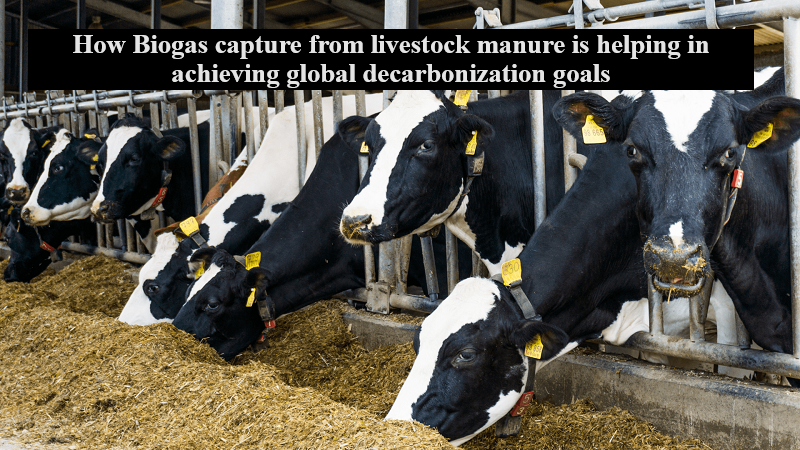
The utilization of biogas capture from livestock manure represents an innovative and sustainable approach that highlights the potential for animal farms, traditionally viewed as contributors to carbon emissions, to play a pivotal role in achieving global decarbonization objectives. This process offers a multitude of benefits for both farmers and the environment while challenging the notion that livestock operations are inherently detrimental to the environment.
Shifting the Narrative on Animal Farms
Animal farms have long been associated with carbon emissions, primarily due to the methane released by livestock. However, the adoption of biogas capture technology transforms this narrative, demonstrating that these farms can be part of the solution to climate change.
Turning Carbon Threat into Opportunity
Biogas capture technology reframes animal farms as potential contributors to global decarbonization efforts. Instead of being perceived solely as carbon emitters, these farms can actively work to reduce their emissions and generate clean energy.
Harnessing Methane Emissions
Livestock operations are uniquely positioned to capture and repurpose methane emissions, which have been a significant environmental concern. By preventing these emissions from entering the atmosphere, farms can play a role in mitigating their contribution to global warming.
Utilizing Biomethane as a Sustainable Fuel
The upgraded biogas converted into biomethane serves as a sustainable alternative to fossil fuels. This renewable fuel can power tractors, farm equipment, and facilities, reducing the reliance on carbon-intensive energy sources.
Economic Advantages and Revenue Generation
Biogas capture technology not only benefits the environment but also offers economic advantages to farmers. They can utilize the produced biomethane for their own operations, potentially reducing energy costs. Moreover, excess biomethane can be sold as fuel or converted into electricity, creating a new revenue stream.
Alignment with Decarbonization Goals
The use of biomethane fuel enables farmers to align with global and national decarbonization policies, showcasing their commitment to environmentally friendly agricultural practices.
Soil Enhancement and Sustainable Agriculture
The solid byproduct, digestate, enhances soil quality as an organic soil conditioner, reducing the need for carbon-intensive chemical fertilizers. This supports sustainable farming practices and contributes to improved soil health.
Inclusivity Across Farm Sizes
Biogas capture is a versatile solution that can be implemented on both large and small farms, ensuring that farms of various scales can contribute to carbon reduction efforts.
Reducing Environmental Impact
Biogas capture addresses not only methane emissions but also mitigates odors and prevents rainwater from entering open-air lagoons, making it a comprehensive solution for reducing the environmental impact of livestock operations.
Global Potential and Positive Environmental Effects
Given the millions of farms worldwide, biogas capture has the potential to make a significant impact on global carbon emissions. It is a scalable solution that can yield positive environmental effects on a global scale.
The collaboration between agricultural machinery firms and biomethane experts exemplifies how the agriculture sector can transition from being perceived as a carbon threat to actively participating in the shift toward more sustainable and environmentally responsible practices. This approach aligns with the broader trend of integrating clean energy technologies into various sectors to reduce emissions and expedite progress toward a more sustainable future.

Post Your Comments